Paro Festival
All photos in this article are taken by ETG client, Steve
Even having travelled all over the world (including seven holidays to Asia with Experience Travel Group), Steve and Joanna were taken aback by Bhutan: its culture, its beauty and its incredible sense of identity that is unlike anywhere else on earth. Their only fear was that it surely can’t stay this way for long…
We caught up for them after their trip to find out more about their experience and ask why they feel travellers need to go to Bhutan now.
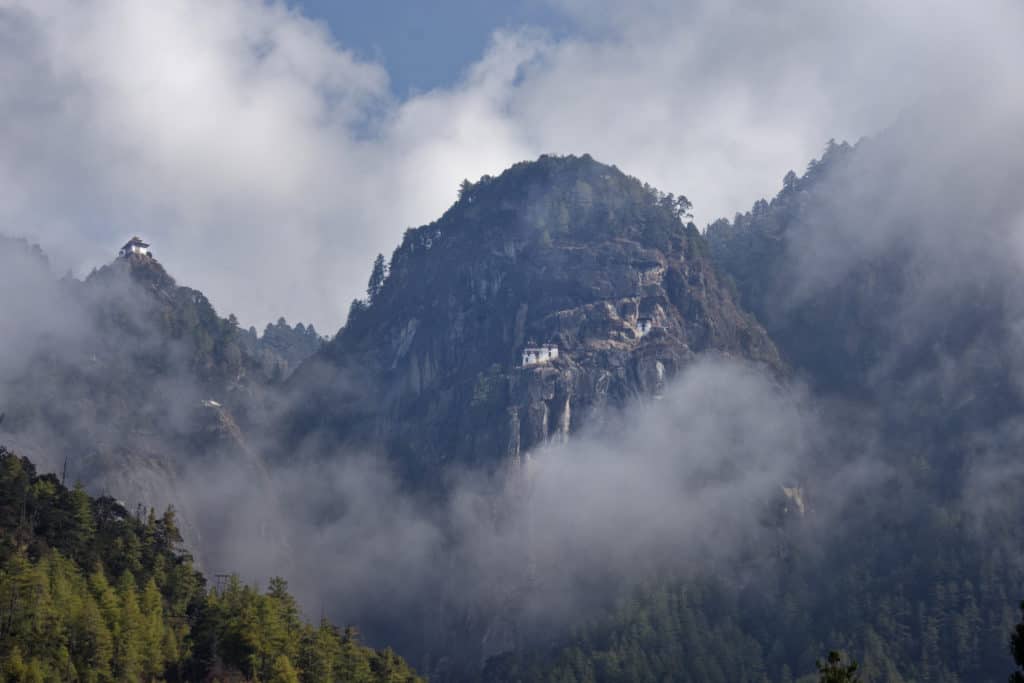
“I don’t know, to be perfectly honest, what I was expecting,” Joanna says. “I knew it would be a lot of forest, a lot of mountains and agriculture. But it exceeded all my expectations.”
Laughing, Steve adds: “I thought it would be a bit like India, but a bit further up in the hills! I obviously didn’t do my homework properly.”
Like Steve and Joanna, many travellers are curious about Bhutan but have little idea what travelling there will actually be like. Having been closed to tourism until 1977, Bhutan still retains an air of mystery. And indeed, on arrival there, Steve and Joanna quickly realised that it was not at all like anywhere they’d ever been before.
Steve tells me, “We’ve travelled with you to Cambodia, Laos, Myanmar and Thailand, and we’ve found there is nowhere as intensely Buddhist as Bhutan. There’s no billboard advertising except pictures of the king, no big adverts like you get over the border in India. And I would say two thirds of the people in the street are wearing traditional clothing just routinely, men and women. It’s just utterly different.”
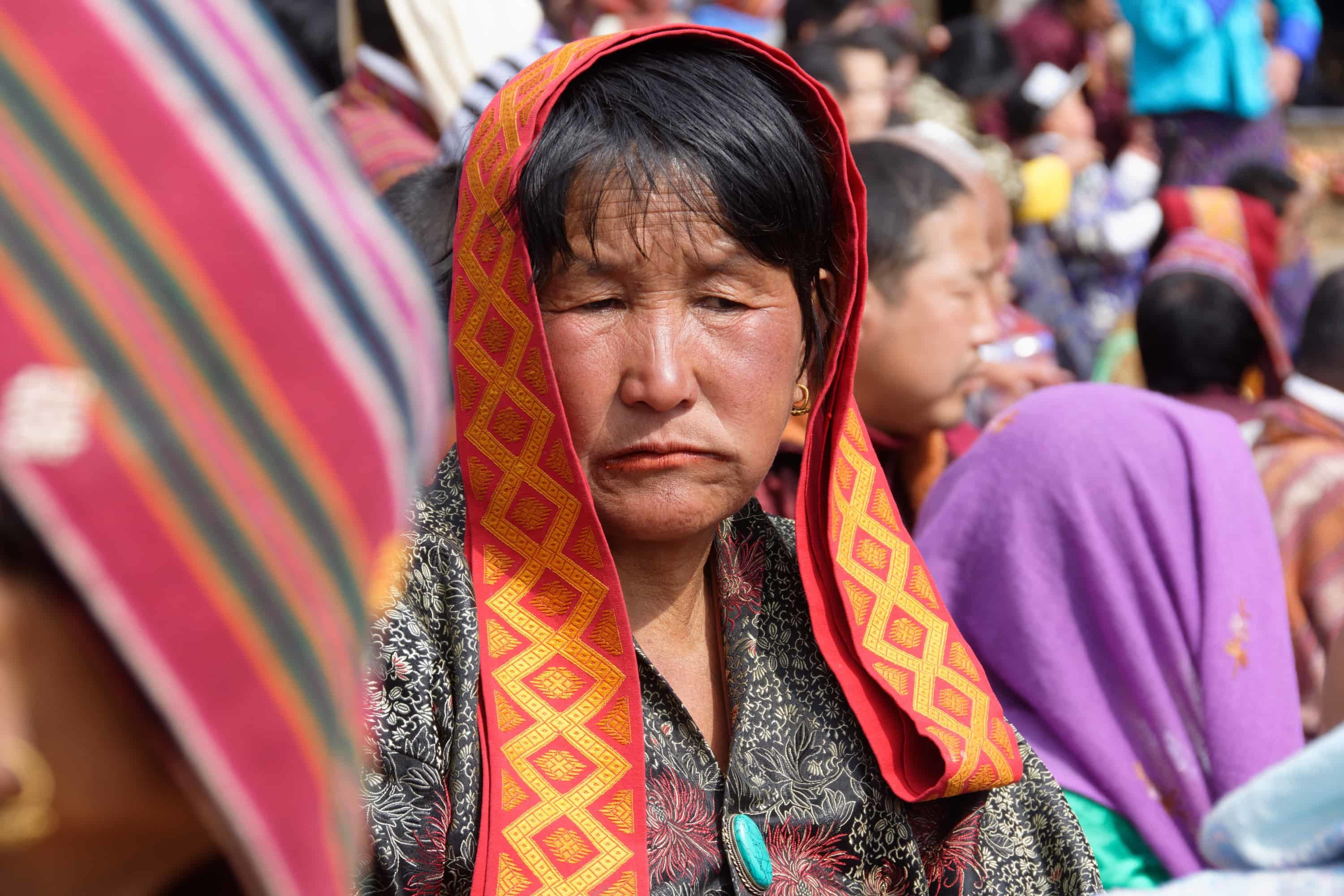
Joanna agrees that it was full of pleasant surprises, especially in terms of accommodation: “I expected [our accommodation] it to be ‘of a standard’, obviously, but it was really excellent. In Punakha we stayed in a beautiful hotel that had rooms built into a forest. Where we stayed in the Haa Valley was charming too, because it was a converted farmhouse, so they could tell us the dining room was the old stable and so on. And looking out of the window on the first morning, I was eye-to-eye with a chough – we were 12 inches away from each other. The birdlife was wonderful.”
As it stands, Bhutan only receives around 70,000 international travellers per year, a relatively tiny number when you consider that Thailand receives up to 39.8 million. As such, on a visit here you will never get the feeling of being overwhelmed by tourists – as Joanna describes, “You bump into people sometimes at night in the hotel, but during the day not really at all. Even when we climbed up to Tiger’s Nest there were a lot of Bhutanese people there as well, so even when you felt you were doing something touristy, it wasn’t exclusively a tourist thing. That’s what we feel is bound to change as more tourists go.”
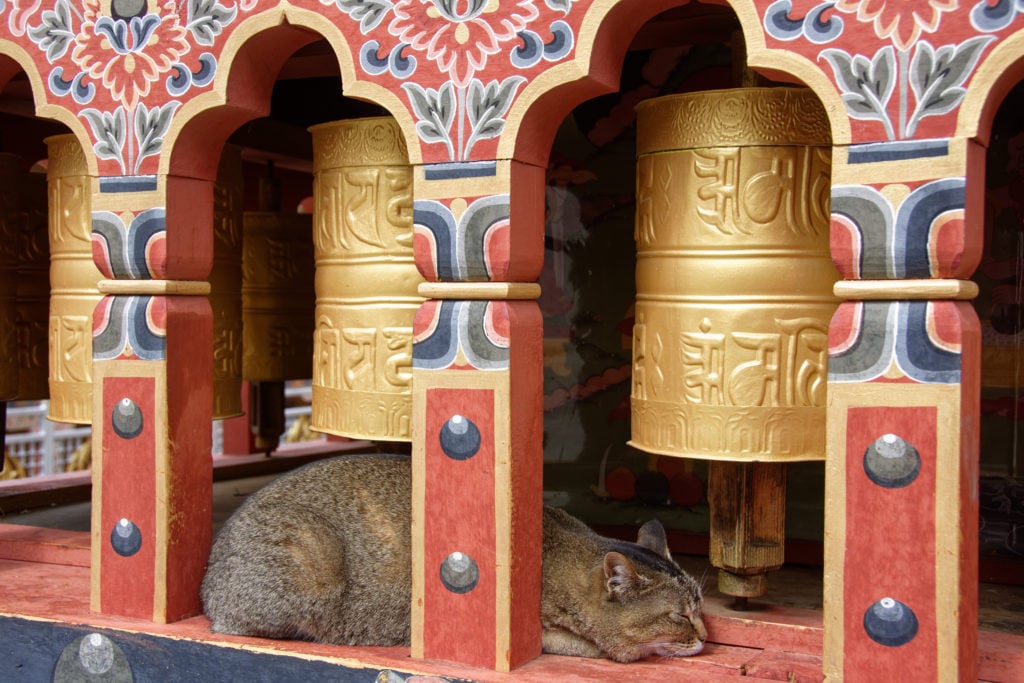
Already, modern influence can be felt creeping in at the seams. Steve describes how “in the cities you could see that most of the kids had mobile phones, everything was run by mobile phones.” And Joanna notes how rapidly the capital city, Thimphu, is developing: “There is a huge amount of building work going on, and someone told us that 10 years ago half the city was rice paddies, so they really are building at quite a rate.”
Steve likens it to Myanmar in this way: “When [Experience Travel Group] first launched holidays to Myanmar in 2011, you said that people needed to go now before it changes. So we did go then, and it was wonderful. Bhutan is the same sort of category: you can see that they don’t want to change, but they will change because they’ve opened the door to modernisation.”
As it stands today, Steve describes that Bhutan “has such a strong self-identity that was very traditionally based on history, but… they are sort of living that history now. The temples that they’re building now look like the old ones, it’s not like going to see some old palace which is part of the National Trust – everything is part of the National Trust there! Everything has this very strong Bhutanese character.”
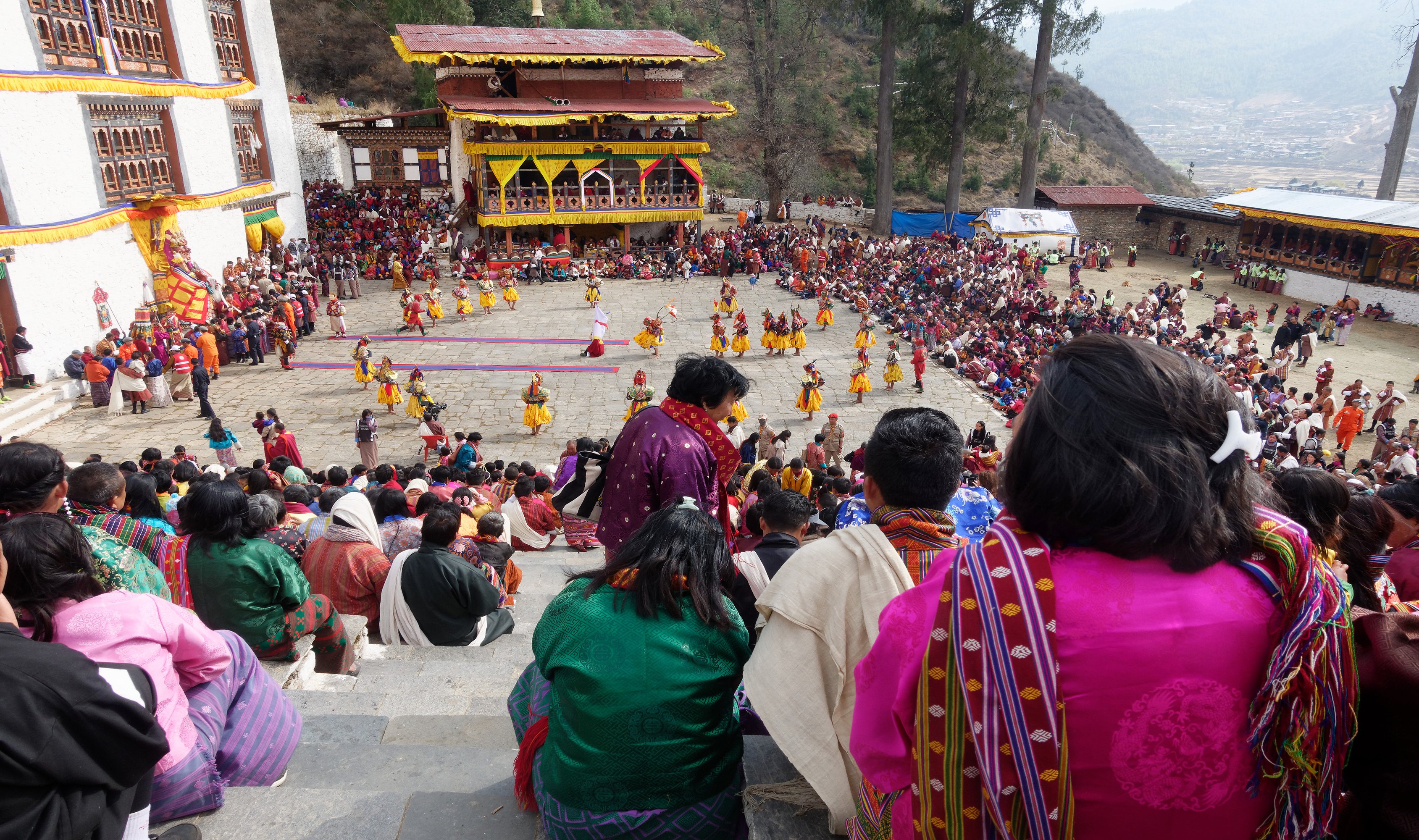
With this special atmosphere, you can have some truly phenomenal encounters on your travels there. I asked Steve and Joanna to share a couple of their favourites.
Steve says, “We went to Paro festival, an annual tradition which is not put on for tourists – it’s put on for [Bhutanese people]. The audience was as interesting as the performers: they all dressed in their finest clothes and looked amazing. We sat all afternoon on these concrete steps, just spellbound. Experience Travel sorted this out for us – you managed to get us in at the right time.”
Joanna says, “I know it’s a bit cliché, but getting to the Tiger’s Nest was a highlight because I wasn’t sure if we were actually going to make it, to be perfectly honest! Our stay in the Haa Valley was another: our second morning when we woke up and there was this fantastic frost and all of the cyprus trees and fir trees on the mountains had this dusting of snow that looked like icing sugar. And we had brilliant sunshine. We were very lucky with the weather. It was quite magical.”
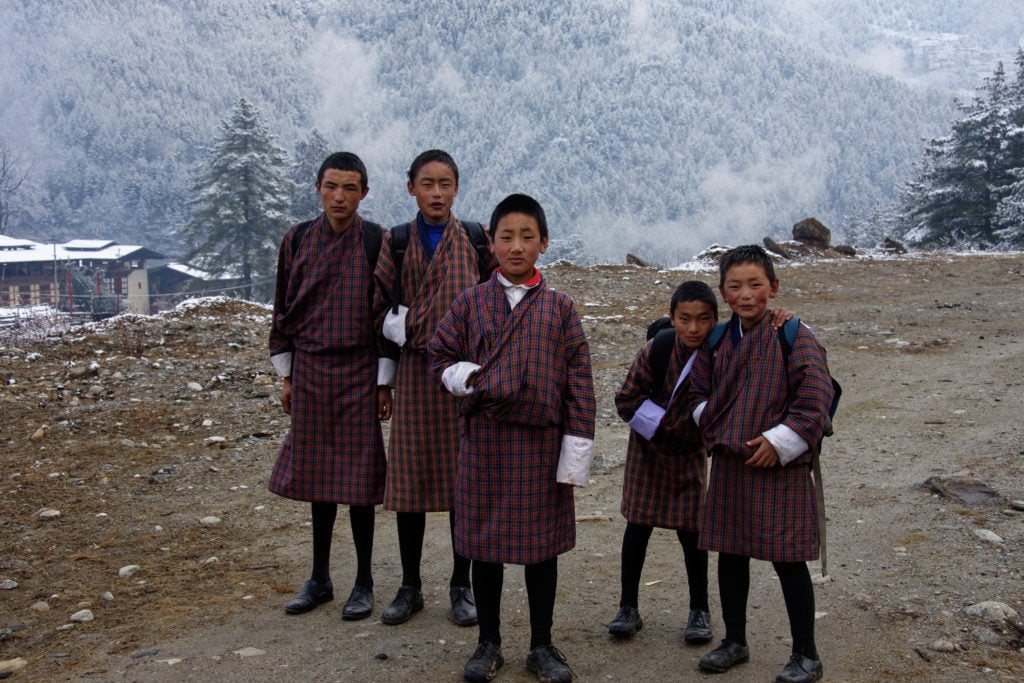
As a final thought, I ask Steve and Joanna what they would say to travellers looking to go to Bhutan. Both came back with a resounding, “Go now!”
As Steve put it, “Go now while it’s still got its traditional lifestyle because, with the best will in the world, I can’t see how they can continue protecting it without being led astray by all the access to internet and more travellers. They’re very concerned about change, and trying to avoid it, but I’m not sure quite how you do it. It’s a balancing act, I suppose.”
And Joanna: “I thoroughly recommend Bhutan – it is a fabulous place to go. You do have to be aware of altitude, take good sturdy boots and layers of clothing, but all the information was in the Experience Travel Group booklet which worked very well.”
This blog was written a few years ago, yet Bhutan remarkably preserves its allure, continuing to be a bastion of traditional values and untouched beauty. Despite the passage of time, this hidden kingdom still offers a rare glimpse into a way of life that has remained unchanged for centuries. As the world around us evolves, Bhutan remains a poignant reminder of the importance of preserving cultural heritage amidst the encroaching influences of global tourism. Now, more than ever, is an opportune moment to experience the magic of Bhutan, to see it in its authentic splendour before the inevitable changes that tourism may bring.
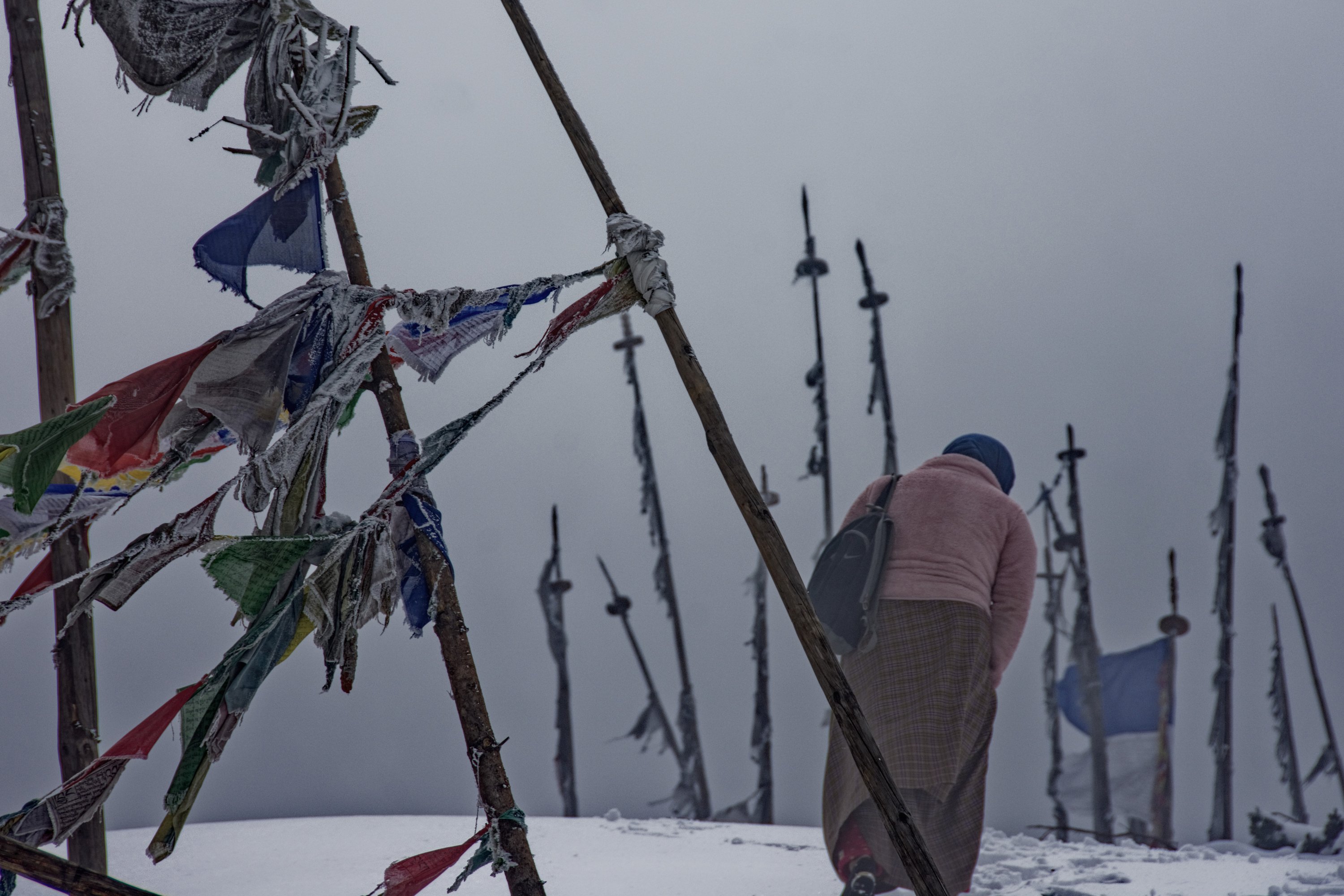
Curious about Bhutan?
You can reach our Bhutan specialist Sara on 020 7924 7133 or by clicking the button below.

We don’t believe in standing still. Watching the world go by through a window. Hearing it through the stories of others.
You want to be in it, out there. Asking questions and finding answers. Finding yourself in worlds unknown. Finding the path less trodden. Meeting people with a different story to tell.
Just ask why, what, how, who? We’ll never stop helping you find the answers.
Our travellers come home with stories to tell, memories to keep and new ways of seeing their lives around them. That’s what happens when you truly connect with a destination.
FREE YOUR CURIOUS SIDE WITH EXPERIENCE TRAVEL GROUP


FREE YOUR CURIOUS SIDE WITH EXPERIENCE TRAVEL GROUP


